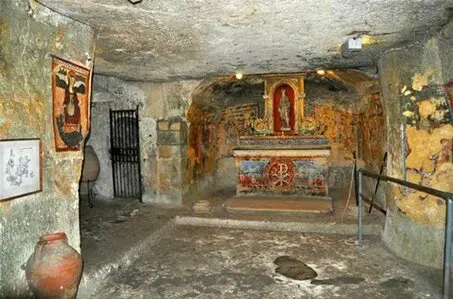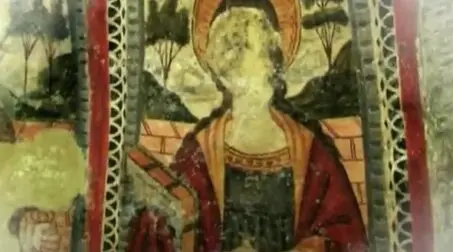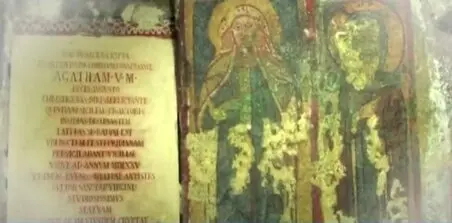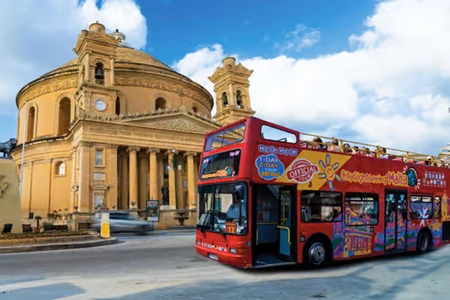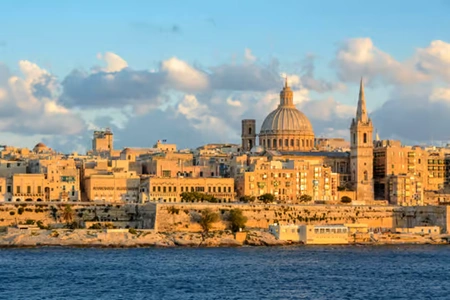St. Agatha's Historical Complex and Catacombs
In the Phoenician - Punician period the catacombs, which were used as a cemetery had to be constructed outside the fortifications. At that moment, the now known city Mdina, was inhabited by the Greek.
During the old Roman time the Jews, Christians and Heathens were buried in the catacombs. In the same period Christians were persecuted by the Roman Emperor and the catacombs were secretly used by the Maltese Christians to hold their religious services.
A girl of 15 years old, called Agatha, a Christian and originally from one of the noble families of Sicily, was forced by a lower-born Roman governor named Quintianus, to turn away from her faith and marry him.
Agatha wanted to remain true to her faith and did not want to marry him. At that time there was the persecution of Christianity of Decius. These persecutions of Christians gave Quintianus the opportunity to imprison her and bring her to justice. Quintianus was the judge.
Agatha fled to Malta and would have hidden herself in this catacomb. The catacomb owes its name to this.
Eventually Agatha fell victim to Quintianus, who had her tortured, raped, cut off pieces of her breasts and stretched her with iron hooks. However, Agatha remained faithful to Christianity and died in prison, probably in the year 251.
St. Agatha’s Catacombs are situated under a chapel which also is named after her. The story of Agatha is one of the important milestones in the history of the Roman Catholic culture on the Maltese islands.
In fact it is an underground basilica, which is honored by the Maltese. At the time of Agatha’s stay the crypt was a small natural cave, which later, during the 4th and 5th century was enlarged and embellished.
One can now during opening hours walk through a 1400 square metres underground labyrinth and see more than 500 old graves showing several grave types, with or without remains. One can also see Christian frescoes. And one can find tables where the last farewell rituals were performed.
A guided tour is also possible and you will hear many interesting facts.
In the museum one finds prehistorical remains, different historical items, religious books, paintings, statues, etc. Often there is an additional exhibition.
Opening hours | Mondays to Friday 10:00 - 17:00 Saturday 10:00 - 14:00 Sunday Closed Holly Mass Monday to Saturday 6:30 Sunday 7:00 |
Last admission | Advice 30 minutes before closing |
Closed | |
Ticket / admission fee | |
Adults (18-59 yrs) | € 5.00 |
Children (under 12 yrs) | € 2.00 |
Students | € 4.00 |
Seniors Citizens | € 4.00 |
Concessions | € 2.00 |
| Family Pack (2 Adults and 2 children under 12 yrs) | € 12.00 |
Address and street / location can be found on our map, click on Guide in the menu bar and you will get a map with markers. | |
Latest news and original website of the attraction / spot / advent | |
Additional information
